Pros and cons of electric cars
Pros and cons of electric cars

Electric vehicles offer many benefits, but they also have some disadvantages when compared to conventional gasoline-powered cars. One of the biggest questions prospective electric car buyers face is whether to purchase an all-electric vehicle (AEV), plug-in hybrid electric vehicle (PHEV), or a gasoline-powered car. Compare and discover new electric vehicles
How do electric cars work? An electric car is any vehicle that is powered by a battery that has been charged by an external electricity source. There are many different categories of Electric and Hybrid vehicles including all-electric vehicles and plug-in hybrids that use both electric and internal combustion engine technology. Pros and cons of electric cars Electric cars are growing in popularity every day. Just like conventional cars, there are certain benefits and drawbacks of using an electric car. Here are the top few to keep in mind: Pros of electric cars Cons of electric cars Electric cars are energy efficient Electric cars can't travel as far Electric cars reduce emissions "Fueling" takes longer Electric cars require lower maintenance Electric cars are sometimes more expensive On the pros side, electric cars are energy efficient, are net good for the environment, and don't require as much maintenance as traditional gas-powered cars. On the cons side, you can't travel as far between refueling, the actual refueling process takes longer than filling a car at a gas pump, and upfront costs are sometimes a barrier. Below, we'll explore these pros and cons in further detail.
Advantages of electric cars Electric cars are energy efficient Energy efficiency refers to the amount of energy from the fuel source that is converted into actual energy for powering the wheels of a vehicle. AEVs are far more efficient than conventional gas-powered vehicles: AEV batteries convert 59 to 62 percent of energy into vehicle movement while gas powered vehicles only convert between 17 and 21 percent. This means that charging an AEV’s battery puts more towards actually powering the vehicle than filling up at a gas pump. Electric cars reduce emissions Emission reduction, including reduced usage of fuel, is another pro for all-electric vehicles. Because they rely on a rechargeable battery, driving an electric car does not create any tailpipe emissions which are a major source of pollution in the United States. In addition, the rechargeable battery means much less money spent on fuel, which means all energy can be sourced domestically (and often through renewable resources such as solar panel systems). Improving battery technology in today's light-duty AEVs means they can drive 100 miles while consuming only 25 to 40 kilowatt-hours (kWh) of electricity. Assuming that your electric car can travel three miles per kWh, the electric vehicle can travel about 43 miles for $1.00. By comparison, if we assume that gas costs $2.50 per gallon, an average gasoline vehicle with a fuel efficiency of 22 miles per gallon will only be able to travel 10 miles for the same price. The distance traveled for a fuel cost of $1.00 is nearly four times as far with an electric vehicle. Electric cars perform well and don’t need much maintenance All-electric vehicles are also high performance vehicles whose motors are not only quiet and smooth but require less maintenance than internal combustion engines. The driving experience can also be fun because AEV motors react quickly, making them responsive with good torque. AEVs are overall newer than their gas powered counterparts and are often more digitally connected with charging stations providing the option to control charging from an app.
Disadvantages of electric cars Electric cars can travel less distance AEVs on average have a shorter range than gas-powered cars. Most models ranging between 60 and 120 miles per charge and some luxury models reaching ranges of 300 miles per charge. For comparison, gas powered vehicles will average around 300 miles on a full tank of gas, and more fuel efficient vehicles getting much higher driving ranges. This may be an issue when looking at AEVs if you frequently take long trips. Availability of charging stations can make AEVs less suitable for activities like road trips. Electric cars can take a long time to recharge Fueling an all-electric car can also be an issue. Fully recharging the battery pack with a Level 1 or Level 2 charger can take up to 8 hours, and even fast charging stations take 30 minutes to charge to 80 percent capacity. Electric car drivers have to plan more carefully, because running out of power can’t be solved by a quick stop at the gas pump. Electric cars can be expensive Electric vehicles (EVs) usually have a higher price tag upfront, though you can save money owning an EV over time since there is generally less maintenance on an EV and it's less expensive to charge than fuel with gas. Also, while battery packs are more expensive in EVs than gas-powered vehicles, they last a significant amount of time and come with 8-10 year warranties. So, you're not likely to have to come out of pocket to pay for a replacement. EVs also often have federal incentives available as well as sometimes state-specific incentives to help reduce the initial purchase price.
Pros and cons of plug-in hybrid electric vehicles Many of the same benefits of all-electric cars also apply to plug-in hybrid electric vehicles. PHEVs are great vehicles for reducing emissions and reducing fuel usage. For short trips, your PHEV may not need to switch away from its all electric motor, in which case the car emits no tailpipe emissions. Even more, PHEVs use 30 to 60 percent less fuel than conventional gas powered cars. If the electricity is sourced from renewable resources, the amount of greenhouse gas emissions can be reduced even further. PHEVs also make great vehicles for those who cannot commit to a fully electric vehicle because of driving and recharging needs. While AEVs are limited to their battery range, the fuel backup in a plug-in hybrid means that when the battery runs out the vehicle can continue to run and even recharge the battery by using fuel. PHEVs usually have a better fuel economy than their conventional gas powered counterparts. Much like an AEV, one of the hurdles to owning a PHEV is the amount of time it takes to recharge the battery. While PHEV batteries are smaller on average than those found in AEVs, a Level 1 charger may still take several hours to charge. A Level 2 charger can take one to four hours. In addition, while fast charging does exist most PHEVs do not have this charging capability. Another factor to consider is cost: like AEVs, PHEVs have a higher price tag than many gas powered vehicles. There are fuel savings, tax credits, and state incentives that can help offset these costs, and as production of PHEVs expands, these prices may come down.
Are electric vehicles worth it? All-electric cars and plug-in electric cars are great for drivers who want to reduce emissions, reduce fuel costs, and drive nice vehicles. However, battery charging can take a long time which may not fit driving needs and the upfront costs mean that the vehicles are a larger investment. It is ultimately up to the driver to decide if this kind of vehicle is the right fit and if so, taking steps even further to reduce emissions by integrating solar panel systems into their vehicle charging. Compare and discover new electric vehicles
Are Electric Cars Worth It? - Pros and Cons
If you’re in the market for a new vehicle, you may have your eye on an electric vehicle (EV). Maybe you want to reduce your environmental impact or simply save money on gas — or you just like the look of the new Tesla and you’re sold. But then you hear that nagging voice, “Are electric cars worth it?” Before deciding on going fully electric or not, you want to understand the benefits of electric cars. Read on to review electric cars pros and cons to help make your decision easier.
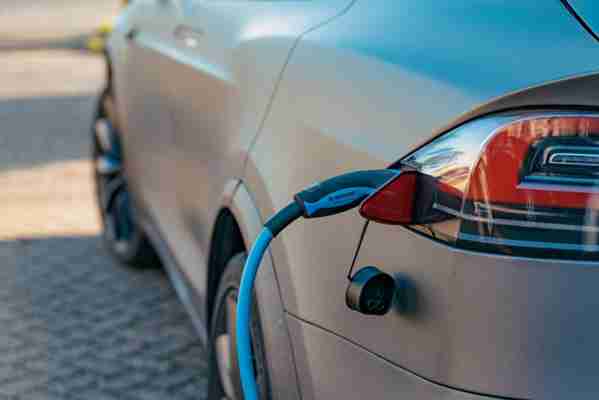
Benefits of electric cars
f you’re wondering are electric cars worth it, it’s key to understand all the benefits of electric cars. Owning an electric vehicle has its perks, so let’s review.
You can save a lot of money
Have you ever lamented about how high the cost of gas is while at the pump? Imagine those days are gone. Instead of filling up your gas tank each week and feeling like it’s taking a good chunk of your discretionary income, you could save a lot of money by going electric. When you have an electric car, you no longer need any gas to fuel your car.
Instead, you need electricity which is much more affordable. According to Energy.gov, you could reduce costs by 50% by going electric when compared to gas. You can even use their nifty eGallon tool to compare the costs of driving with gas versus electricity. For example, in California, it shows that the cost of gasoline is $3.73 per gallon compared to $1.86 for electricity.
Being able to cut your costs in half is remarkable for your budget and can reduce your overall spending, freeing up money to put elsewhere — like savings, debt, or even a fun hobby.
Electricity is renewable
The thing about gas is that it’s a finite resource as it uses oil to create gas. Oil is a natural resource. Given everything going on with climate change, it’s important to take a harder look at natural resources and the way they’re being used.
That’s why electric vehicles are an attractive alternative. Unlike gas which can technically run out, electricity can be renewable. It’s possible to get electricity in renewable ways such as through wind or water powers or even solar energy.
Renewable energy is on the rise as the U.S. Energy Information Administration (EIA) noted that usage reached record highs as of 2020, making it 12% of energy consumption. According to the EIA website, “The electric power sector accounted for about 60% of total U.S. renewable energy consumption in 2020, and about 20% of total U.S. electricity generation was from renewable energy sources.”
You can lower greenhouse gas emissions
One of the major benefits of electric cars is the fact that you can reduce your environmental impact. Regular vehicles that use gas greatly contribute to greenhouse gas emissions. In fact, according to the Environmental Protection Agency (EPA), as of 2019 transportation makes up 29% of greenhouse gas emissions, effectively the largest contributor next to electricity (25%), industry (23%), commercial and residential (13%), and agriculture (10%).
Electric cars don’t have an exhaust pipe to create greenhouse gas emissions. That’s not to say there is no environmental impact.
If you use coal or natural gas to power electricity, it can leave carbon pollution. If you use one of the more natural ways listed above, you don’t contribute to carbon pollution.
The EPA does state on their website, “Even accounting for these electricity emissions, research shows that an EV is typically responsible for lower levels of greenhouse gases (GHGs) than an average new gasoline car. To the extent that more renewable energy sources like wind and solar are used to generate electricity, the total GHGs associated with EVs could be even lower.”
According to the U.S. Department of Energy, the national averages for annual emissions per vehicle is 11,435 pounds of CO2 equivalent for a gasoline vehicle whereas for all-electric vehicles it is 3,774 pounds of CO2 equivalent which represents 3x less CO2 than gasoline vehicles.
You can take advantage of tax credits
Another major perk of owning an electric car is the tax credits you could qualify for. According to the U.S. Department of Energy website, you could get up to $7,500 in tax credits. Your car must be all-electric or plug-in hybrid and made in 2010 or later to qualify.
Tax credits are more effective than deductions at lowering the amount you pay in taxes as they’re dollar-for-dollar. Meaning, if you owed $10,000 you could effectively lower your tax bill up to a maximum of $7,500 and only pay $2,500.
It’s important to note that the tax credit is only available up to the limit. So if your tax bill is only $2,000, you can receive the credit for up to $2,000 and the rest won’t help your tax situation any further. Deductions lower your taxable income which can lower how much you pay in taxes but is not dollar-for-dollar.
Less maintenance is required
When you have a regular car, you need to fill up the gas tank regularly and also change your oil at regular intervals. All of that can add to the cost and time it requires to maintain the car. When it comes to considering electric cars pros and cons, this is a huge benefit. On top of that, there may be fewer repairs needed as well.
Better performance
Electric cars tend to be much quieter than gas vehicles. That noise reduction can improve performance and quality of life and lead to a smooth ride on the road. Electric vehicles tend to be more energy efficient in stop-and-go traffic as well and electric motors actually react faster than mechanical engines. All of these factors combined make for a better performance and experience as both a driver and passenger.
Downsides of electric cars
Now that you know the benefits of electric cars, it’s time to consider the cons as well. Here are the most common downsides of electric cars.
Electric cars can be pricey
Though you can benefit from the cost savings on gas, there’s no doubt that electric cars are more expensive than standard cars to buy. In some cases, thousands of dollars more.
But Business Insider recently discovered that there is a new group of EVs priced at $35,000. Additionally, Axios noted that electric vehicles are more expensive to buy but not to own. Due to lower maintenance costs it may all even out. But just be aware that you could pay a higher sticker price.
Charging can be a lengthy process
When you have an electric vehicle, you can’t just go to the pump and get on your way. You do have to charge your vehicle for it to work properly. Depending on your make, model, and year, your EV could take between 4 and 20 hours or more to charge. Having a charging station in your home can certainly help, but you need to make sure you budget for that time to adequately charge your vehicle.
You can’t go as far or as long as gas cars
A major downside to owning an electric vehicle is that you can’t go as far or as long as you might want. Electric vehicles can typically go between 60-100 miles when fully charged, but many modern EVs may get up to 250 to 350 miles per charge. Compare that to up to a maximum of 400 miles on a single gas tank (depending on car and efficiency), it’s a notable difference. Going on a road trip is less ideal in this scenario with an electric car.
Finding a station can be tough
If you don’t have a charging station at home, you’re at the mercy of public charging stations. While some cities may have plentiful options, not every place does and it can all depend. The lack of stations in your area could present a challenge if you’re in a bind and need to go somewhere. Be sure to do research about charging stations in your neighborhood and what options are available.
Car insurance premiums may increase
Another downside to consider is that car insurance premiums may be higher with an electric vehicle. The website ValuePenguin found that electric vehicle insurance premiums were 23% higher than regular cars. Part of that is due to the fact that electric cars can be more expensive. So if something were to happen to you, it may cost more to repair.
Electric cars pros and cons
Pros Cons You can save a lot of money Electric cars can be pricey Electricity is renewable Charging can be a lengthy process You can reduce your environmental impact You can’t go as far or as long as gas cars You can take advantage of tax credits Finding a station can be tough Less maintenance is required Car insurance premiums may increase Better performance
Are electric cars worth it?
If you’ve been thinking of buying a new car it’s natural to wonder, are electric cars worth it? The benefits of electric cars are generous and pretty clear cut but you also want to know about electric cars cons as well. It may cost more to buy and insure your car, but you’ll likely make up some of that with reduced costs on fuel.
If you are thinking about purchasing an electric vehicle, chances are you don’t drive much or are actively looking to drive less. Pay-per-mile auto insurance can be a good fit for you and help you lower car insurance costs.
You can see if pay-per-mile car insurance is right for you with Metromile. Download the Metromile app and take a Ride Along™ trial for free. For about two weeks, you’ll drive like you typically do (you should keep your existing insurance policy to keep covered during the trial). After, you’ll see how much you could save if you switched to a usage-based insurance policy.
Drivers can also save up to an extra 15% off their initial Metromile auto insurance quote if they show they’re a safe driver during their Ride Along™ in select states.
—
Melanie Lockert is a freelance writer, podcast host of the Mental Health and Wealth show, and author of Dear Debt. She’s a cat mom to two jazzy cats, Miles and Thelonious, an amateur boxer, music lover, and needs coffee to function.
Top 10 Pros and Cons of Electric Cars
The electric car has gone mainstream with sleeker, more affordable options to choose from. Because electric car models are newer than their gas-powered counterparts, many consumers are unaware of their options aside from the many recently announced carmakers going all-electric.
In this article, we will focus purely on the pros and cons of all-electric cars.
What are the pros and cons of electric cars?
For car drivers looking for a low maintenance alternative to their gas-powered car, electric cars offer many advantages. However, if you are worried about not being able to commit to charging your car, you might want to stick with your gas car for now.
Electric cars pros and cons Pros Cons Lower ongoing costs Few charging stations Reduce carbon footprint Long charge time Low maintenance needs Limited driving range High-quality performance High upfront costs Convenient Battery replacement expense
Pros of electric cars
If you're comparing the merits of an electric car to those of conventional vehicles, be sure to keep the following benefits in mind:
Lower ongoing costs
Recharging an electric car is much more affordable in the long run as opposed to refueling a gas-fueled car.
This is especially true when taking into account the fact that you can recharge your electric car at home and get tax benefits from installing a solar powered carport or using solar panels for your electricity.
Reduce carbon footprint
According to the EPA, one traditional gas-fueled passenger vehicle with a 22-miles per gallon range emits an average of 4.6 metric tons of carbon dioxide per year.
Non-hybrid electric cars emit zero tons of CO2 or other greenhouse gases, making them much more environmentally friendly. Charging electric cars with renewable energy, like solar, ensures no CO2 is emitted at any phase of your vehicle use.
Low maintenance needs
Mechanical engines have a lot of moving parts, including pumps and valves, along with fluids that need changing. Think frequent oil changes - which electric cars don't have.
Because electric vehicles don’t have as many components that need replacing, less maintenance is necessary. Electric cars also generally last longer than their gas-powered counterparts because of less wear and tear.
High-quality performance
Because there is no exhaust system, electric cars are known for operating smoothly and quietly. Electric crossover and SUV models are much quieter than traditional gas engines, which leads to less noise pollution and a more relaxing ride. Electric motors also tend to react much quicker than mechanical engines, providing more torque and agility while driving.
Additionally, electric cars usually operate more efficiently and use less energy in stop-and-go city traffic.
More convenient
A lot of people mistakenly think that electric cars are more inconvenient since you have to find charging stations, which aren’t as easy to find as gas stations.
But the ability to charge electric models at home is a great advantage, and more charging stations are popping up around the country every week, for both Tesla models and other brands. Some newer electric cars even have voice-enabled systems so all you have to do is ask where a charging station is and the car will lead you there.
Get an estimate for solar and charge your EV more efficiently Calculate Now
Cons of electric cars
Although electric cars have more than their share of advantages, it's worth noting that they are not without their drawbacks. The following are a few of the disadvantages of electric cars:
Finding charging stations can be challenging
Even though you can charge an electric vehicle at home, finding a charging station if you're driving through rural areas or on a long-distance road trip can be a challenge. As noted above, more areas are embracing EV charging stations and numerous hotel chains have started to include EV chargers in their parking lots. This trend will continue as demand for charging stations increases.
Charging can take a while
Adding gas to a fuel tank doesn't take much longer than five minutes, whereas recharging an electric car can take some time to do, especially if the battery is fully depleted.
It can take upwards of two days to get a full charge on a battery pack using normal outlets, depending on car type and battery size. Even the fastest charging stations will take 30 minutes to get near 80 percent capacity.
The driving range is limited
The driving range of a gas-powered car is much longer than that of an electric car, which can range anywhere from 100 miles to 400 depending on the type of car.
This can be problematic if you're planning a long-distance trip, but it should be fine for daily commutes if you charge your car nightly.
High initial costs
Although the cost of an electric car can be offset by fuel cost savings and tax credits, the upfront price of most electric cars is higher than that of comparable gas-powered vehicles.
Battery packs can be expensive to replace
Although little maintenance is generally needed, don't be surprised if you need to replace your electric car's battery pack at least once during its lifetime.
Doing so can be expensive, although it's worth noting that the price has dropped significantly over the past few years at under $6,000.
Is owning an EV right for you?
Hopefully, the above pros and cons can help you determine if an EV makes sense for your driving needs. With more car companies like Volvo and GM committing to all-electric, the electric car is going to be the norm in a few year’s time.
This can help ease range anxiety because the more the market embraces electric cars, the more innovative and practical electric cars will become. It also means more charging stations will be available, as well.
If you want a new car for your daily commute, take a look at which electric cars we recommend. You will find familiar luxury models like BMW, Audi, and the Jaguar i-Pace, or more affordable options like the Nissan Leaf, Kona, and Hyundai.
If you are committed to combating climate change and would like to save money in the process, you could also add solar panels to your home, which would further complement an emissions-free lifestyle.


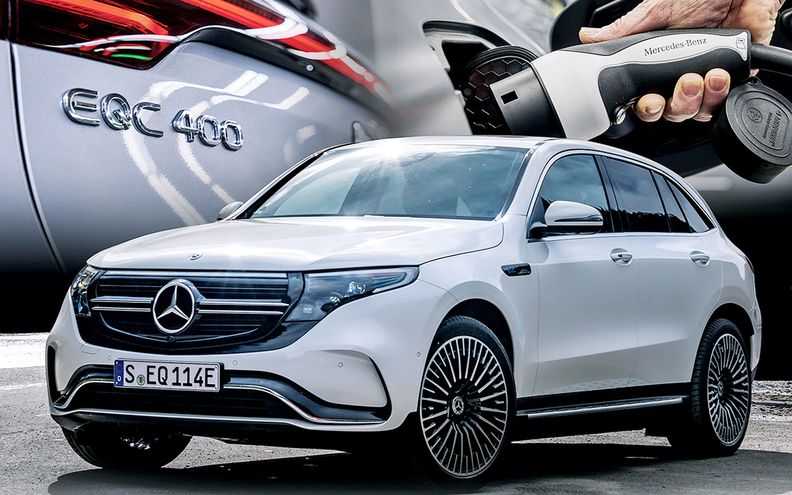


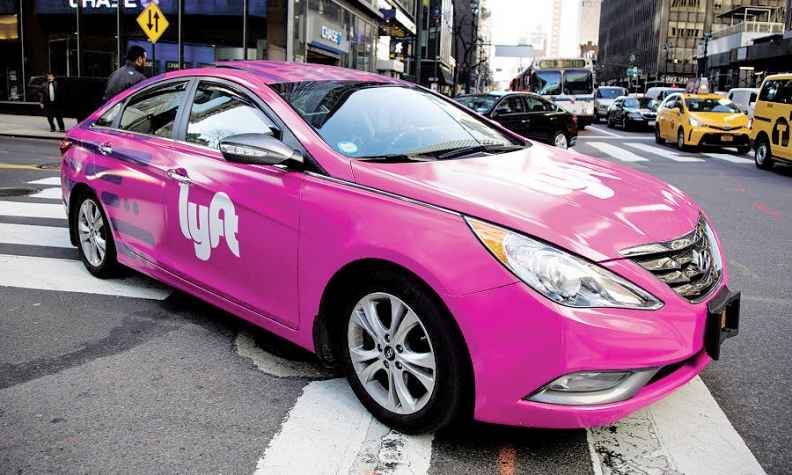
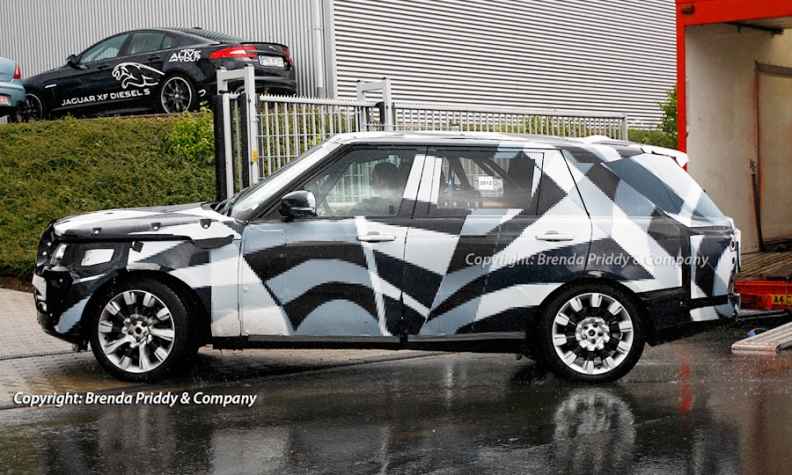
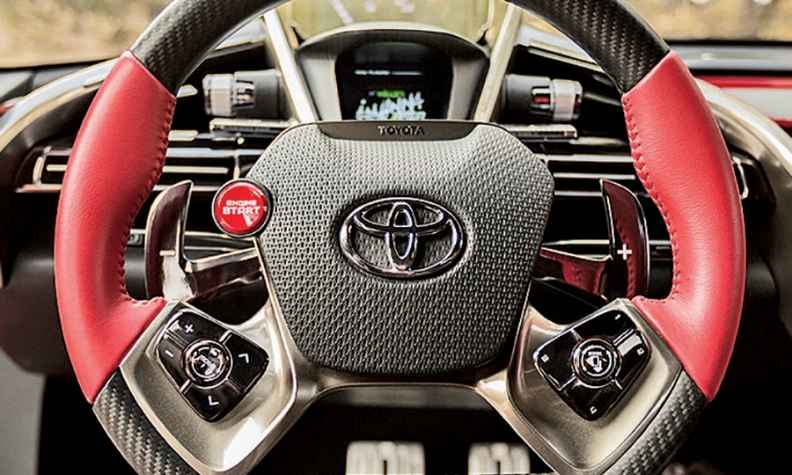

Post your comment